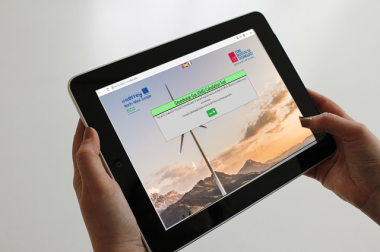ECCO partners in Cork Institute of Technology have developed a greenhouse gas (GHG) calculator. It is an online tool that is capable of measuring the CO2 emission reduction of various forms of renewable energy compared to national and EU averages per year. The tool will also calculate the equivalent amount of trees that will absorb that amount of CO2 in their lifetime and the number of houses that will produce that amount of CO2 per year.
This tool lets the user choose a form of renewable energy from the following options:
- PV-Wind-Hydro
- Demolish wood
- Sawdust
- Manure
After clicking on an option, a form will appear that will let the user enter further details about the chosen form of renewable energy. Each option has specific measurements, further information for each is provided when the user hovers the mouse on the question mark icons. After filling out the form partially or completely, the tool will proceed to do the calculations and update the result table.
The purpose of this tool is to allow current and potential renewable energy consumers to understand the positive impact of choosing these types of power sources. The user can see how much GHG they will avoid producing by using these types of energy and can relate that amount to standard households in their country. Participants around the world can use this tool - the data currently held in the tool includes an average for the 28 EU countries, and specific data for Belgium, France, Germany, Ireland, the Netherlands and the UK. The country-specific data allows the results shown to be meaningful to the user as they will see the impact they would have in terms of other households in their nation. Furthermore, this tool is also available in French and Spanish to make it more accessible to users who do not have English as their first language.
The GHG calculator has been developed to allow people to be able to gauge what the impact of using renewable energy would be for their community. One of the benefits of this tool is that for RE sources such as Sawdust, that contain multiple data entry fields, the user does not need to enter information in every box. This calculator will take any data provided and return a measurement of GHG emissions that would be reduced. It is an important feature to have as it can be difficult to have accurate measurements for each stage of the RE fuel, such as the weight loss between stages or distance travelled from site to site. Not all communities will be able to provide extensive information regarding their renewable energy source but are still interested in learning about the GHG outputs of the system.
This tool is beneficial to ECCOs within the project as it can be used as a way to calculate the GHG saved each year from the various forms of community energy that are being utilised. These measurements can be recorded and utilised as an example of the success of community energy in battling global warming. The results will be crucial to enhance the understanding of policymakers about the advantages of investing in community-owned renewable energy. Supporting the growth of community energy sites across the EU and globally will be a positive step in battling the current climate crisis.

